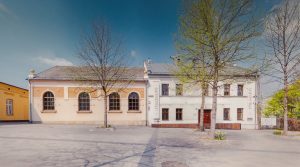Following years of violence against mixed-gender and all-female prayer groups at the Western Wall – experienced by some of my Vancouver friends – it seems that an agreement has been reached. Egalitarian prayer groups will be accorded a significant prayer place at the Kotel.
Women who wanted to pray in all-female or mixed minyanim, even separated from the main area, were often spat on, had trash thrown on them.
The main plaza became less and less accessible, even to those of us who would use the Orthodox women’s section. We were admonished, not gently, if we appeared without “modest” dress.
READ: SHARING SPACE AT JUDAISM’S HOLIEST SPOT
Once, I inadvertently stood with my foot up against the stone to brace me, and in a flash, I was hit on the shoulder and warned. The spot was sacred.
Come on. Herod’s dying slaves built that spot, for goodness sake. Their sad deaths may make it holy, but in itself it is stone and dust.
Holiness: we attach it to many things, despite being told that our actions make us and those around us holy, not the stone and wood of our physical world.
But I digress. Today we celebrate.
Since the day I saw the Kotel from a dirty little alleyway between houses and the Wall (1964), and then saw it years later from the Israeli side (1971), not yet cleared of rubble but already opening its arms to welcome its children back, that spot has been for me a place of wonder.
When confronted with, when drawn inexorably toward the Kotel, I felt – what? Awe that it still stood, after 2,000 years, as testimony to the time when all Israel turned towards it in awe? A deep sense of historical connection to this spot? The place where 2,000 years ago the People of Israel felt touched by the sacred?
Wonder: both atheist Oliver Sachs and Rabbi Abraham Joshua Heschel agreed that the sense of wonder should pervade us. For Sachs, wonder was to be found within the human brain.
There, he found sublime content. While in a moving essay written just before his death, he recalled his family home (a bitter-sweet memory) and the meaning he felt in celebrating Shabbat with his Orthodox family in Israel, still, the Creator was not a source of wonder for him, but the creation.
For Rabbi Heschel, Judaism is a religion of time, time in which we can experience wonder. He differed with Sachs. “The sense of wonder for His creation,” he writes in The Prophets, “is common to all men.” For Jews, however, it derives from the reaching out of God to us, and from us to God.
If we can stand in a place so fraught with life and death as the walls around the Temple Mount, then in whatever space we stand, we stand in a place of wonder.
It has been many years since I felt those emotions that gripped me the first times I davened at the Kotel. So when I next get to stand there, mindful of the ordinary 2,000-year-old street on which a platform will be raised, ready for prayer, I hope to achieve what Rabbi Heschel advises: “Prayer takes the mind out of the narrowness of self-interest and enables us to see the world in the mirror of the holy… Prayer teaches us what to aspire for… Prayer implants in us the ideals we ought to cherish.”
READ: RECOGNIZING PLURALISM AT THE WALL A GOOD FIRST STEP
We can, I know, find in everyday prayer a sense of touching something outside ourselves. Maybe only occasionally, but when it happens we know it. How much more so at this Wall.
So – at the Kotel is it because we stand in wonder where ordinary people walked so long ago or plied their trade? Or is it because we can almost touch in wonder the place where Israel celebrated its festivals? Because it is a fraught moment of prayer?
It’s all of these – sheer wonder.
Photo: Israel Tourism Flickr






